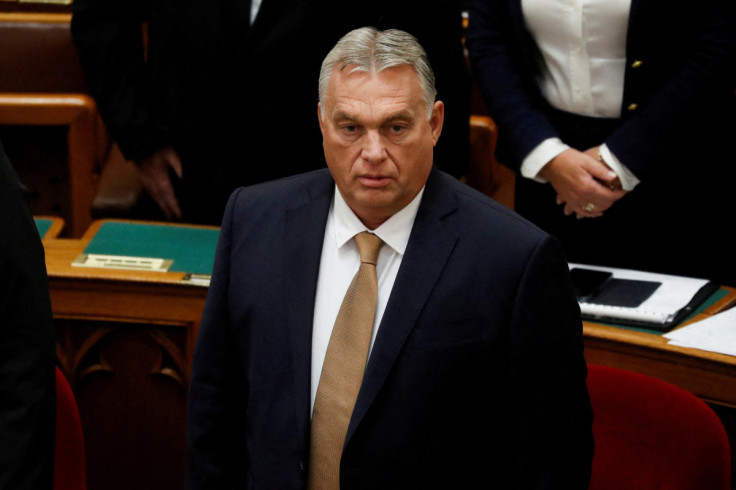EU reviews Hungary's eligibility for sorely needed aid
The European Union's executive is due to come up with a new assessment on Friday of the state of democracy in Hungary to help the bloc's 26 other member states decide on whether to grant Budapest billions of euros worth of funds.

The European Union's executive is due to come up with a new assessment on Friday of the state of democracy in Hungary to help the bloc's 26 other member states decide on whether to grant Budapest billions of euros worth of funds.
Trying to unlock access to the money, Hungary's nationalist Prime Minister Viktor Orban is facing one of the greatest challenges of his 12-year rule as domestic inflation is seen climbing to 26% this month, the cost of state debt has shot up and the economy is expected to slow sharply next year.
At stake is 13.3 billion euros ($14.1 billion) that had been earmarked from the EU's joint coffers for Hungary but blocked over worries around corruption and poor judicial independence.
The European Commission is due to communicate its position to the Czech Republic, current holder of the EU's rotating presidency, in a letter later on Friday, two officials said.
Hungarian Justice Minister Judit Varga said this week that parliament had approved more laws to address the graft concerns since the Commission concluded its last assessment in November.
Sources said EU countries could seize on Hungary's latest legal changes to conditionally approve Budapest's national recovery spending plan worth 5.8 billion euros and lower from 7.5 billion the value of other funds to be frozen.
"If there is a clear assessment that in those 20 days the Hungarians have made some more significant step... then it would probably lead to a more moderate evaluation from the point of the frozen funds," said one Czech government source.
That discussion might only happen on Monday, the sources also said, adding that any decision on funds for Hungary would also depend on whether Budapest moves on two other decisions Orban has been blocking - an 18 million euros joint EU loan to Ukraine and a proposal for a global minimum corporate tax.
COMPROMISE?
International watchdogs say Orban has long channelled EU funds to associates to entrench himself in power. Orban says Hungary is no more corrupt than others.
The self-styled "illiberal" crusader has had many bitter fights with the EU over media and academic freedoms, the treatment of migrants and LGBT rights. He has cultivated close ties with Moscow and repeatedly stalled EU sanctions against Russia over the war in Ukraine.
But with Hungary's forint currency down 11% versus the euro this year, Orban has sought to strike a deal with the Commission, creating an anti-graft agency to help unlock the sorely needed EU funds.
The Commission had earlier recommended freezing 7.5 billion euros, or 65% of development funds assigned to Hungary from the EU budget until the end of 2027, citing corruption risks.
The Commission has also been withholding its approval of some 5.8 billion euros for Hungary from an EU fund set up to help countries recover from the COVID pandemic.
An end-of-year deadline increases the pressure as both sides seek to wring concessions.
Consultancy Eurasia Group expected a deal this year but warned that risks were growing "as Brussels and EU capitals are inclined to show... Orban the bloc will not be blackmailed." ($1 = 0.9463 euros)
Copyright Thomson Reuters. All rights reserved.






















